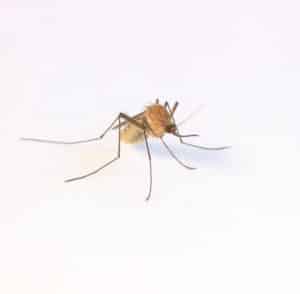
Photo by Cameron Webb on Unsplash
Mosquitoes, those tiny buzzing insects that seem to appear out of nowhere, are more than just irritating pests. They have a fascinating biology and play significant roles in ecosystems around the world. In this article, we will delve into the intriguing world of mosquitoes and explore 10 fun facts that will give you a new perspective on these tiny but mighty creatures.
Fun facts about mosquitoes
- Ancient Existence: Mosquitoes have been buzzing around the Earth for approximately 210 million years. They have evolved and adapted to various environments, making them one of the oldest groups of insects still in existence today.
- Global Distribution: Mosquitoes can be found almost everywhere on the planet, except in extreme environments such as polar regions. They are incredibly adaptable and have managed to colonize a wide range of habitats, from swamps and forests to urban areas.
- Mosquito Magnets: Ever wondered why some people seem to attract mosquitoes more than others? It turns out that mosquitoes are attracted to certain scents and chemical compounds emitted by our bodies, such as lactic acid, carbon dioxide, and certain skin chemicals. Genetics, blood type, and even clothing color can influence mosquito preferences.
- Female Feeding Frenzy: Contrary to popular belief, only female mosquitoes feed on blood. They require the proteins found in blood to develop their eggs. Males, on the other hand, feed on nectar and plant juices. So the next time you get a mosquito bite, you can blame it on a hungry female!
- Marvelous Mouthparts: Mosquitoes have highly specialized mouthparts designed for feeding on both plants and animals. The female’s mouthpart, known as a proboscis, consists of a set of needle-like structures she uses to pierce the skin and locate a blood vessel. While it may cause an itchy nuisance to us, it’s a vital tool for her survival.
- Buzzing Flight: The distinctive buzzing sound you hear when mosquitoes are nearby is not just incidental. It’s actually the sound of their wings beating rapidly. Mosquitoes can flap their wings up to 600 times per second, producing that high-pitched hum we’re all too familiar with.
- Lifespan Surprises: The average lifespan of a mosquito varies depending on the species and environmental factors. In general, males live for about a week or two, while females can live for several weeks or even months. However, in some cases, mosquitoes have been known to survive for up to six months.
- Olympic-Level Hunger: Female mosquitoes are on a mission to nourish their eggs, and they take their feeding seriously. In search of a blood meal, they can detect their targets from over 100 feet away. Their persistence and keen sensory abilities make them skilled hunters in their own miniature world.
- Mosquito Disease Vectors: While most mosquito bites result in nothing more than an itchy bump, mosquitoes are infamous for transmitting diseases. They are responsible for spreading diseases such as malaria, dengue fever, Zika virus, and West Nile virus, making them one of the deadliest creatures on Earth.
- Ecological Impact: Despite their annoyance and disease-transmitting capabilities, mosquitoes do play a role in ecosystems. They serve as a food source for various animals, including birds, bats, and other insects. Additionally, their larvae contribute to nutrient cycling in aquatic habitats.
Mosquitoes may be considered nuisances, but their existence and behavior are undeniably fascinating. From their ancient lineage and peculiar feeding habits to their vital ecological roles, these tiny insects are more than meets the eye. By understanding these